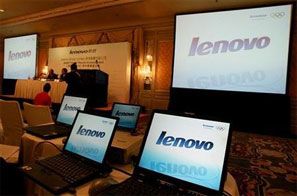Lenovo's business plan sounds a bit like a Sun Tzu stratagem: "Protect PC, Attack PC plus". The Chinese group has done the first, defying shrinking global sales of personal computers to increase revenue and expand margins. But dependence on China leaves it exposed.
 Lenovo did well after absorbing IBM's laptop business in 2005. It may need a similar gambit to speed its assault on "PC plus" - the company's name for tablets and smartphones.
Lenovo did well after absorbing IBM's laptop business in 2005. It may need a similar gambit to speed its assault on "PC plus" - the company's name for tablets and smartphones.
The world's largest PC maker is king of a shrinking hill: the global market declined by 7.6 per cent in the third quarter, according to IDC. Lenovo managed to generate record revenue by taking market share, while margins expanded. However, two-thirds of operating profit still comes from China, where PC shipments contracted by 15 per cent. That explains its desire to diversify.
Lenovo does decent business selling smartphones to mostly Chinese customers. Where it lags is tablets. Apple dominates that market with a 40 per cent share this year, according to Canalys. Lenovo's slice is about a tenth as large.
Though the company has hired Ashton Kutcher - the actor who played Apple founder Steve Jobs - as a "product engineer", it will take more than star power to persuade customers to abandon their iPads.
An alternative approach would be to buy an existing brand. That worked well for Lenovo in the past: the company owes much of its current dominance in PCs to the $1.25 billion acquisition of IBM's business in 2005.
Finding suitable smartphone and tablet makers to buy could be hard, however. Lenovo was interested in Blackberry, but Canadian security concerns seem to have gotten in the way. Asian alternatives might be more acceptable: while troubled, Taiwan's HTC has good relationships with US phone carriers.
Mergers and acquisitions are inherently risky: though the IBM deal was a success, Taiwan's Acer has struggled despite its takeover of PC maker Gateway in 2007. No matter how Lenovo goes about it, the company will soon need to shift the emphasis from defense to attack.












 © 2025
© 2025